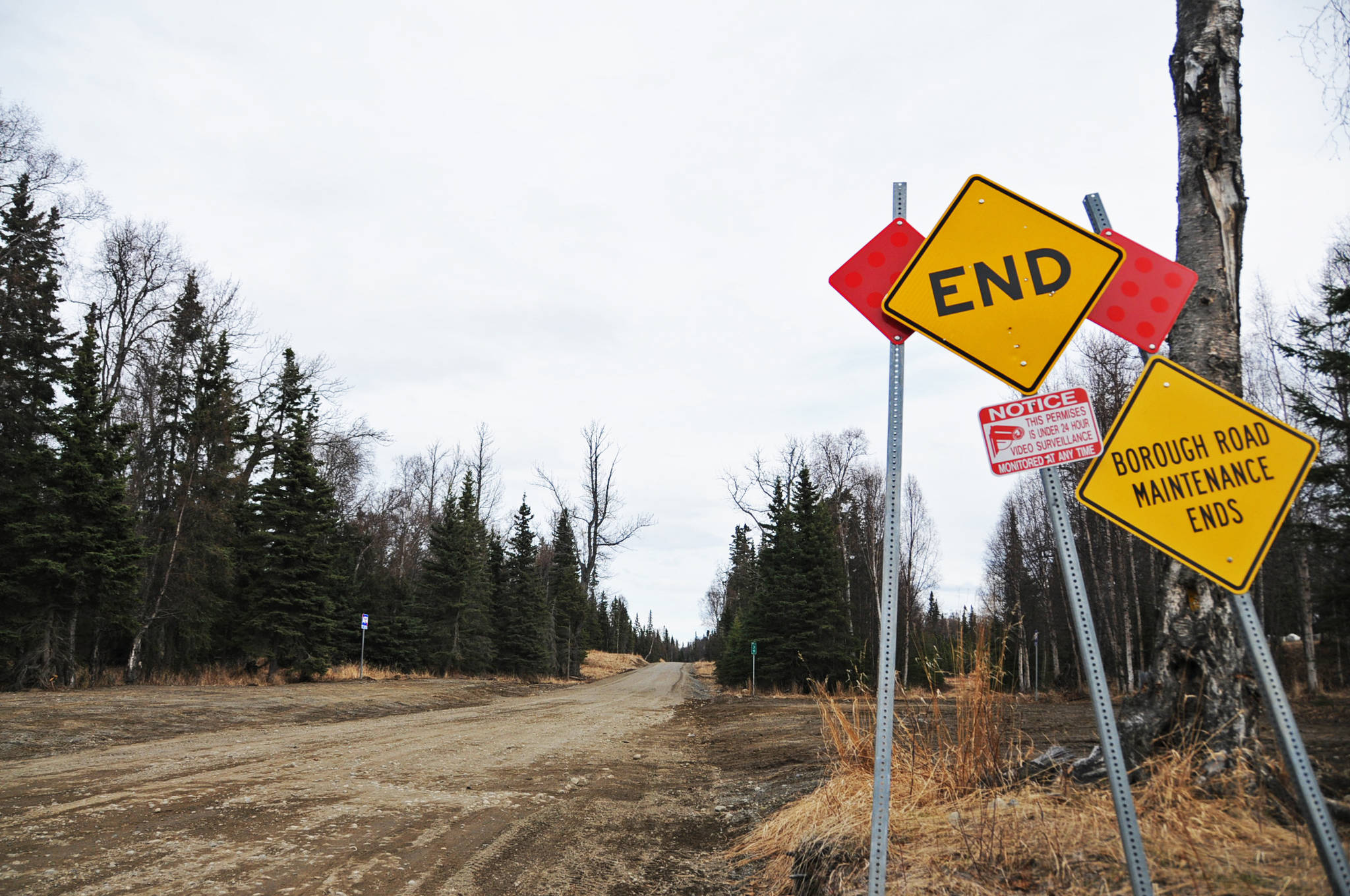Kenai Peninsula Borough project managers are moving forward with plans to extend the Kenai Spur Highway north, but construction likely won’t start until next year.
Borough administrators have long been eyeing a project to extend the highway up to 7.5 miles north of its current terminus at the Captain Cook State Recreation Area. There are a number of privately-owned parcels of land north of Nikiski with no road access that the borough subdivided and began selling in the 1980s, and the owners have said they would like more reliable access and the ability to develop the land. Though the project got earmarked funds, it became clear that the environmental impact study and planning would consume the vast majority of the money, so the administration decided not to move forward with the project more than a decade ago.
The road nearly became a reality again in 2014, when Apache Corporation was exploring for oil and gas resources in the area and announced its intention to pick up the road extension project to provide access to its sites. However, the company announced its intention to depart Alaska in early 2016, which left the road’s future questionable.
Borough Mayor Mike Navarre’s administration worked with the company to obtain the work it had already done on the road project as a donation, kickstarting the project and cutting the expense for the borough. Part of the challenge of the funding that had been set aside was that it required a local match to access the federal funds, and the borough would have had to pitch in significantly. But Apache’s in-kind donation counted toward the donation, a value of about $1.2 million, and the borough was able to get started on the project again.
Right now, borough Road Service Area staff are revising some of the road designs, said Project Administrator Henry Knackstedt. Although the funds are limited because the borough will be responsible for any cost overrun, the plans will go all the way to Otter Creek, about 7.5 miles from the current end of the road in case funds in the future become available, he said.
“I hate to throw away work that’s been done by others, and I’ll build the road as far as I have money,” Knackstedt said. “There will be some additional work beyond that, so … hopefully someone can get some money for that.”
The borough now holds all of Apache’s permits and work on the project and all the agreements are set up with the Federal Highway Administration, but the agency still has to grant a categorical exclusion for the road. A categorical exclusion, granted by the U.S. Environmental Protection Agency, is a designation that exempts a project from the need for a costly environmental assessment and environmental impact statement process based on the type of land a project will be crossing.
The highway extension will be crossing wetlands and uplands that have never been previously crossed, but the EPA has said it will likely grant the exclusion, Knackstedt said. However, the plans have to be a little further along and consider the impacts to the wetlands and creeks that the road will be crossing.
The roads department is planning to send the project out as a two-year job, with a base bid and two alternatives, depending on how much money is left. It’s likely that the project won’t go out to bid until the fall, with the possibility for some construction to begin in the winter, he said.
“It is advantageous to do some of the construction in the winter depending on the type of winter we have,” Knackstedt said. “Certainly clearing of trees.”
Part of the design work will also now formally improve a trail access to the beach, known as Jacob’s Ladder, near Leif Creek. The trail will not only provide beach access but may also reduce wetland impact by isolating traffic onto the road and the trail, Knackstedt said.
The borough has a little more than $5 million left in its earmarked fund for the project. The object is to use as much of it as possible to “lay down gravel,” Knackstedt said. Despite shrunken state budgets and tight fiscal times for municipal governments, now is actually a good time to ask for bids on construction projects. Because of the sparseness of work due to reduced state capital project expenditures and scaled back oil and gas work, construction companies are submitting lower bids, making things cheaper for those seeking contractors to do projects.
The north road extension project will likely be more expensive by nature, but the lower bid environment could help, Knackstedt said.
“It’s in a difficult location because it’s at the end of the road,” he said. “All the material has to be carried out there … It makes the project more expensive to begin with, but hopefully with the bidding environment, we’ll be able to do it.”
Reach Elizabeth Earl at elizabeth.earl@peninsulaclarion.com.

